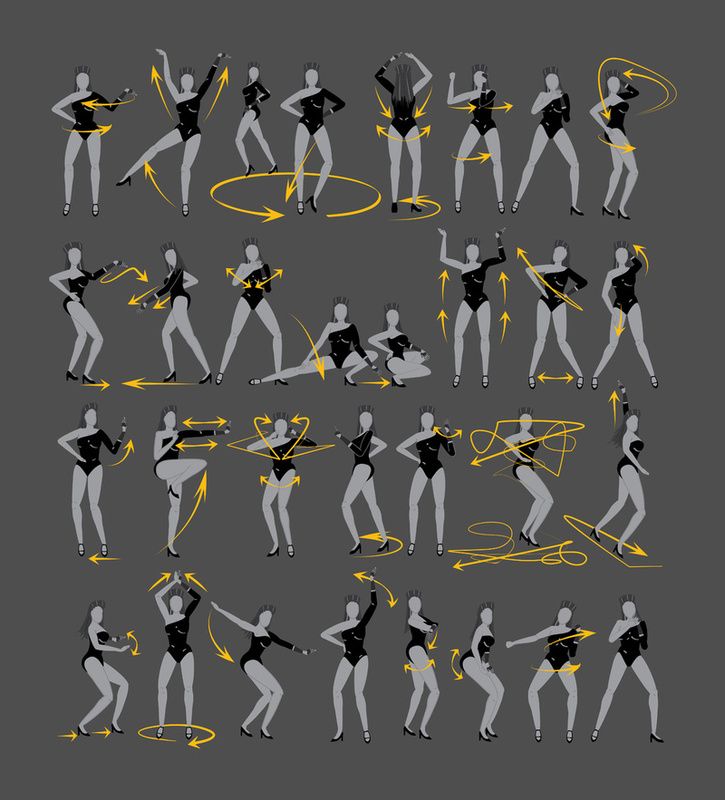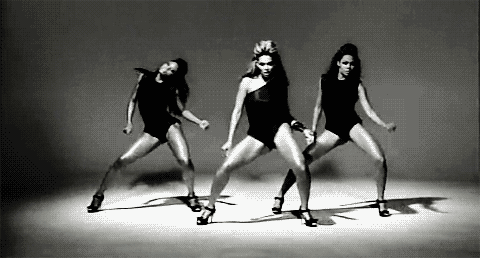How to be a great dance mom
How to Be a Cool and Supportive Dance Mom
TV shows like “Dance Moms” have given a notorious reputation to all dance parents. Some tips and ideas on how to beat the stereotypes and be the coolest dance mom or dance dad, ever!
Competition/ Recitals season will be soon upon us. And those who have spent most of their time watching "Dance Moms" a couple of years back and now eagerly awaiting the new show touted as season 8, here is some news. Reality has stretched a tad too much in reality TV shows, and whether you are a dancer or a dance parent, you should take it with a pinch of salt!
Understanding The Dance Mom (Or Dance Parent)
You didn’t choose upon yourself to be a dance mom. It was handed over to you the moment your child decided she wants to be a dancer. Suddenly, from a safe and secure world of the known, like going to work or doing housework, you are catapulted into a world which is beyond your control.
Watching those little feet in small shoes that you never wanted to take off gradually gets replaced by constant push and pull of power between the parent and the child. The daily grind of being a dance mom is enough to make a reality TV show of your own, because of the ups and downs and the underlying range of emotions from excitement to the euphoria that comes with the title.
A dance parent is someone you would encounter sitting in the waiting area of a dance studio, or waiting backstage for the child to finish the performance. There are still a few who are forever recording whatever is happening around them on their phones. A dance mother could either be gregarious or reclusive or someone who is ambivalent to various factions of dance parents.
Then there will be some who would be pushy, always wanting the best out of everyone, while being at their worst behavior. They nudge their children to stand in the front row, ask studio owners and instructors tonnes of questions with raised eyebrows and are generally being nasty/condescending to no one in particular.
I can visualize you smirking as you are reading this, but some dance parents live their reality show participant fantasy in real life! In the end, your children may hate you for being such a bad influence( and may need a therapist to get over it), the dance instructors curse you under their breath or shudder at the mere thought of having you back again the next season, and you are left wondering where and how you went wrong about all this.
Being a Cool and Supportive Dance Mom (Or Dance Parent)
Being a dance mom is like walking on razor’s edge. You could be blamed for the slightest disciplinary nuance in your behavior, or you could be termed too slack and uninterested in your child's dance progress.
Ways, the blame, as well as the credit of how bad or good your dancer performs often gets shared by you. You can not absolve yourself after paying the fee and ensuring they are dropped and picked up on time. Here are a few tips on how to be a cool but supportive dance mom.
Prepare your child to be in class at least 15 minutes earlyA no-fret mom knows that traffic could be an issue, and reaching early can help your child, and you socialize with others attending the class. Your child will have enough time to warm up and get focused as well.
Make sure your child is in proper dancewearAll good dance schools have dress codes.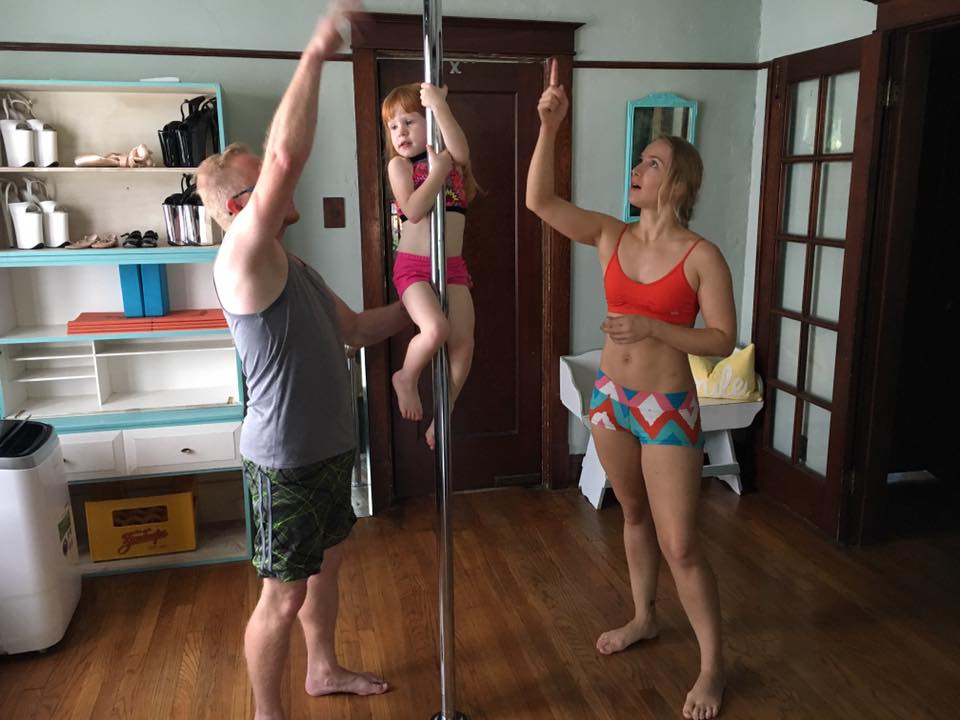
Teachers have different reasons for this- when all dancers look the same, mistakes stand out better and can be corrected quickly, proper dancewear ensures you can see the body to check technique, footwork, and pirouettes.
Slicked bun helps to master spotting for pirouettes. The list goes on. You may feel like buying shoes a size or two up because kids outgrow them too fast, but it is dangerous as it could cause injury.
Ensure a healthy diet for your child, and yourselfNo the soda and a quick takeout, while you are driving, is not your lunch. Dancers too need to fuel their body correctly. If you are not following healthy meals, it’s hard to stress on the same to your young child. Take the lead and eat healthy for your child to develop. Bonus? Eating healthy keeps you in shape!
Ensure your child is well restedIf the child is sleep deprived, he/she is bound to be slow in getting ready, maybe cranky too. Lack of sleep adds to stress levels and affects their performance.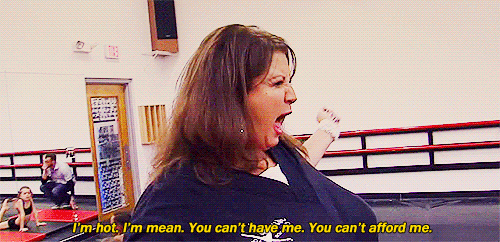 Have healthy sleeping habits yourself, and follow it through to make sure the child has too.
Have healthy sleeping habits yourself, and follow it through to make sure the child has too.
Make sure your child’s dance bag has band-aids, bobby pins, hairnets, a hairbrush, extra tights, new leotards, safety pins, a spoon and fork, tissues, toe pads, lamb's wool, headphones, and emergency cash. If you are giving a cell-phone to your child, make sure it’s adequately charged, and sync it with your phone for emergencies. Encourage them to stock up their bag if they are in their teens. Self-dependency teaches them a lot many things.
Stay well-informedPut all important dates like recital dates, audition dates, and deadlines on your calendar. Remember to check the bulletin boards in the studio from time to time. If you are new to the studio, ask other parents questions and always spend a little extra time getting to know the faculty.
Take care of your financesThe cost of summer programs is crazy, and it’s only going to get worse. Start saving in a separate account for your child’s dance fund right away. By the time they are ready for the next level, you will have enough saved to meet the expenses comfortably.
Start saving in a separate account for your child’s dance fund right away. By the time they are ready for the next level, you will have enough saved to meet the expenses comfortably.
Be a cool mom, volunteer for your child’s dance school. Participate in fundraisers, teach other moms how to put their kids’ hair into a bun, offer to carpool, or pick up the teacher on their way if asked. If you are great at DIY, offer to assist with costumes.
Dads can pitch in too, pulling the curtains, running fog machines, setting up the stage, there is a lot that needs to get done, and helping out motivates and inspires your child to perform their best. One sound advice, help other kids too, not just your own- it’s gratifying.
How Dance Moms Can Inspire and Be a Pillar of Strength
Parenting is a rewarding journey.
There are more lows than highs, but it teaches you a lot of things. And the reward and the end of any tiring day are a happy child and a tight hug. Amongst so many duties and making ends meet, it is easy to lose focus and the reason for all the hassles you go through to make sure your child lives the dream of being a dancer.
Amongst so many duties and making ends meet, it is easy to lose focus and the reason for all the hassles you go through to make sure your child lives the dream of being a dancer.
There are many times when you would look for ways to motivate a young dancer on the verge of giving up.
There are many things that you can
1. Be a good listener - Your child will go through a lot of emotions and will be frustrated. Give an excellent hearing to all their feelings, let them vent out, try and stay unaffected. Listen, but don’t react.
2. Stay positive - Always find the bright side of things. If your child is asked to repeat a level, tell them they will be far ahead of others in the class. Be sympathetic; it’s not easy to accept defeat, even if at a young age. If they are not selected for a lead role, tell them hard work always beats talent, especially when talent doesn’t work hard.
3. Help manage stress - Your children are also affected by your stress levels, and the pressure to perform during auditions is tremendous, you can help your children stay motivated during dance auditions and continue doing what they love with some handy tips here
4. Don’t discuss other students - Every dancer works hard to be where they are. During competitions or even during recitals or practices, avoid commenting on other dancers. Whether you care for their dance or not, they deserve your appreciation and respect. Don’t sow the seeds of looking down on others in your child. Keep your comments to yourself or your partner for the wine after dinner!
Don’t discuss other students - Every dancer works hard to be where they are. During competitions or even during recitals or practices, avoid commenting on other dancers. Whether you care for their dance or not, they deserve your appreciation and respect. Don’t sow the seeds of looking down on others in your child. Keep your comments to yourself or your partner for the wine after dinner!
5. Respect and praise the process - It’s not just about the performance or the grand finale. The method of learning the dance should be celebrated more than winning. Compliment your child and her team on how prepared they are; feel proud of the hard work they all have put in.
6. Learn to be in shadows - No armchair quarterbacking, please! Don’t offer unsolicited, last minute advice. It doesn’t help your child. Never draw attention to their weaknesses right after the performance. No matter how small, your child knows! Sit in the audience and let your child and her instructor know you have confidence in their abilities.
7. Enjoy being a dance mom! - The days you and your child are living are never going to be back again. Take each day as it comes, and make sure you live them to the fullest. The idea here is to make your child understand how they can learn a new skill without pressure and still enjoy themselves. Dance is a great leveler and can teach your child some essential life skills like staying focussed, disciplined and working hard, besides keeping them fit.
To all the dance moms and dads out there, you guys are doing a fabulous job! Less drama and more helpfulness, and never doubt that your child or their dance teachers don't understand the sacrifices you make for their passion, they may not say it, but they appreciate you equally!
8 Helpful Tips for New Dance Moms
Updated July 27, 2020
There’s nothing quite like seeing your child learn to dance and perform. Parents of dancers get a unique look at what it takes to become a dancer.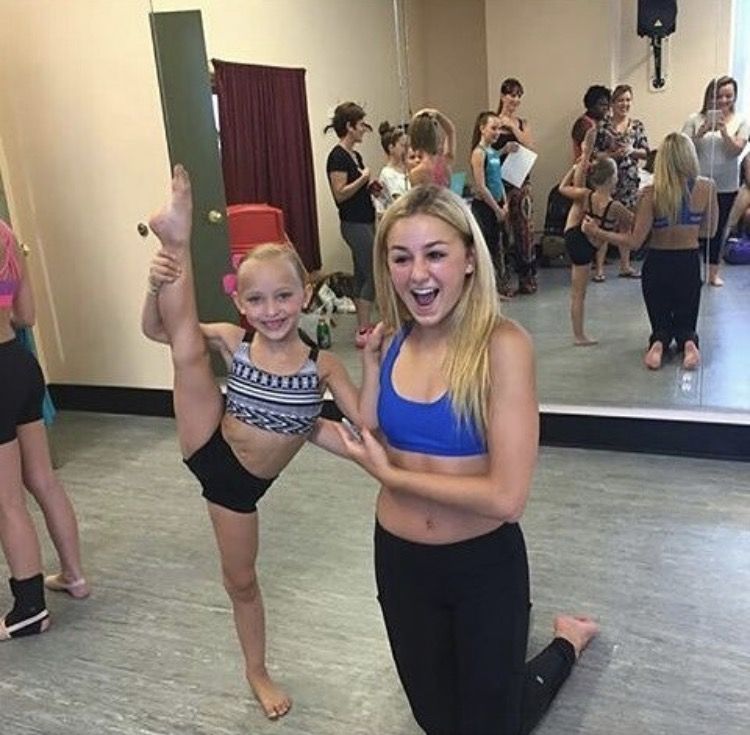 Entering the world of dance is exciting, but it can also be overwhelming. First-time dance parents may be unaware of the many challenges and opportunities that come with dance and likely have questions about what it takes to be a supportive and prepared dance parent.
Entering the world of dance is exciting, but it can also be overwhelming. First-time dance parents may be unaware of the many challenges and opportunities that come with dance and likely have questions about what it takes to be a supportive and prepared dance parent.
You’re not alone—no matter if your child is taking their first dance class or moving to a higher competitive level, this guide provides valuables resources and information for dance parents.
8 Things Every New Dance Mom Should KnowEntering the world of dance lessons for kids is exciting, but it can also be a little overwhelming. Here are eight helpful tips for first-time dance parents to make dance lessons and performances enjoyable for you and your child.
Here are eight helpful tips for first-time dance parents to make dance lessons and performances enjoyable for you and your child.
Dance parents are a strong community. The parents of other dancers can be your biggest support system and resource. Talk to other moms and dads during class and get to know their kids. Many parents have had their kids in dance for years and they can give you advice and tips.
Don’t Compare Your Kid to Other DancersEvery child progresses at their own pace. Don’t compare your child to other dancers or expect them to all learn the steps and move to different levels at the same time. Focus on encouraging your child to do their best and have fun without worrying about what other people are doing.
Get the Right Shoes and ClothesJust like having the right sports equipment is vital to success on the court or field, having the right dance equipment is crucial to a dancer’s success.
It can be hard to sit back and watch your child learn something new, especially if they are having a hard time mastering a new dance step. Don’t jump in to help your kid during the middle of class. Trust the teachers. They are experienced dancers and know what they’re doing.
Organize Costumes and AccessoriesPerformances and competitions can be a flurry of excitement, especially when dancers must bring multiple costumes and accessories. Keep everything organized in garment bags to avoid wrinkles or damage to the costumes. Organize accessories in plastic bags and make sure everything is labeled with your child’s name. Take pictures of your child in the costume with all the accessories on and put it in the bag so they know exactly how the costume should look. Organizing your things before the performance helps ensure that nothing gets damaged or left behind.
Here’s a great resource to learn how to pack a dance costume bag.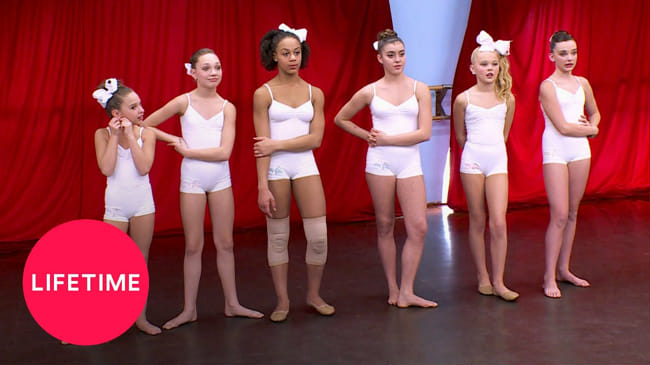
Pack a dance bag with extra tights, leotards, socks, bobby pins, Band-Aids, and other supplies your dancer might need. This is especially important for performances, but it can also be useful during regular dance classes. The last thing you want is for your child’s tights to tear during the middle of rehearsal without any replacements. Here’s an article with more ideas on what to pack.
Bring Snacks to Rehearsals and PerformancesDress rehearsals and performances can be long. Keep your dancer’s energy up by bringing snacks and extra water. It may seem like a little thing, but it can help make a long day go much more smoothly. Just remember to pack snacks that can be eaten quickly and aren’t messy, so they don’t ruin the costume.
Have FunKids learn many important life skills in dance class like confidence, discipline, and dedication. But, above all, kids should be expressing their creativity and having fun.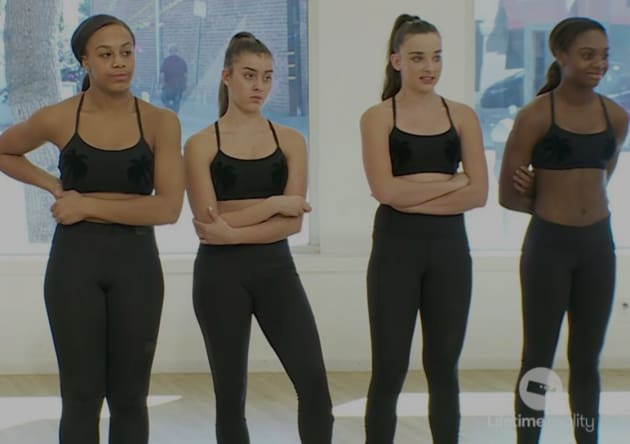
One of the biggest challenges for parents of dancers is helping their child balance dance with their many other responsibilities, including school. The following guide provides tips to set your child up for success in school and dance.
5 Ways to Help Your Child Balance School and DanceYou have an aspiring dancer and a busy school student. It can be difficult to stay on top of your child’s many activities, especially as they foster their talent for dance with a dance class while also striving to do well in school. As a parent, your job is to help your child find balance between school and dance so they can learn, grow, and develop good habits.
Here are five tips for helping your child stay on top of school and dance lessons.
Create a Daily ScheduleOne of the best ways to establish balance at home is to create a daily schedule. When your child knows what to expect next, the entire day goes more smoothly. Find ways to work both school and dance into your daily schedule. Your schedule could include waking up at a certain time and getting some homework done before going to school. After school could include dance lessons before family dinner and more homework. A daily schedule removes daily choices and makes it easy to know what to do next. Another bonus is that a daily schedule helps you and your child prioritize their most important activities and tasks for the day. Every family’s daily schedule will be different, but the important thing is to find the routine that works for you.
When your child knows what to expect next, the entire day goes more smoothly. Find ways to work both school and dance into your daily schedule. Your schedule could include waking up at a certain time and getting some homework done before going to school. After school could include dance lessons before family dinner and more homework. A daily schedule removes daily choices and makes it easy to know what to do next. Another bonus is that a daily schedule helps you and your child prioritize their most important activities and tasks for the day. Every family’s daily schedule will be different, but the important thing is to find the routine that works for you.
Find a way that works for you to stay organized. It doesn’t matter how you do it—a paper planner, online calendar, or a big family calendar for everyone to see. Create one central place to put all of your appointments and deadlines, including homework assignments, school projects, dance lessons, and performances. It can be a lot for a kid to know where they need to be and when they need to be there. Staying organized will help you create a routine and see when you’re double-booked in advance, instead of being surprised at the last minute. Putting all of your appointments in one calendar may seem overwhelming at first, but once you find a system that works for you and your family, you’ll likely find that calendar becomes a lifeline to staying organized.
It can be a lot for a kid to know where they need to be and when they need to be there. Staying organized will help you create a routine and see when you’re double-booked in advance, instead of being surprised at the last minute. Putting all of your appointments in one calendar may seem overwhelming at first, but once you find a system that works for you and your family, you’ll likely find that calendar becomes a lifeline to staying organized.
As a family, sit down and set boundaries. What are your priorities? What are things that can’t be interrupted by dance? These boundaries are different for each family and can be agreed upon by everyone involved. Some families may set a boundary that no matter how busy things are with school or dance, the child needs to be in bed by 9 p.m. each night. Other families may say that the child can only stay in dance lessons if he or she gets certain grades in school. Find the boundaries that work for your family and align with your priorities.
With multiple activities, it’s easy to always be thinking ahead to the next thing. But worrying about a homework assignment during dance class doesn’t do anyone any good. It leads to a distracted dancer who isn’t getting all they can out of their class. Encourage your child to be all in—when they’re at school, their total focus should be on school. When they’re at dance, their total focus should be on dance. Set the example with the same mindset yourself. Enjoy the moment without worrying about what will happen next in another area.
Give Them Time to RelaxNo matter how serious your child is about dance or school, remember that they are still a kid. Give them time to relax and hang out with friends and family. Encourage them to find a hobby that lets them completely unwind, like reading or playing outside. Dance and school teach discipline and other incredibly valuable skills, but kids also benefit from unstructured time. If you need to, put downtime in the calendar and don’t let other things get in the way of that time for your kid to relax and just be a kid.
If you need to, put downtime in the calendar and don’t let other things get in the way of that time for your kid to relax and just be a kid.
Being a dance parent is busy and exciting. You get to enter a new world and watch your child grow and learn new skills. Stay involved and be invested in their success to join in the journey.
How to become a good mother? - this question worries many women who are preparing to become a mother or are already raising a baby. In the view of an ordinary person, a good mother is one who has a healthy, obedient, cheerful child who does not cause problems to others. If the behavior of the baby does not fit into the given framework, then the mother does not educate him well.
But is it really so? What maternal attitudes hinder the normal development of the child?
How to become a good mother: psychological readiness
Is being a parent easy? You might like our selection: The best courses for parents!
Being a mother is an art. It is necessary not only to have time to feed, dress the baby, follow the elementary rules of hygiene, but also touch his soul. On the other hand, there is nothing difficult about being a mom. Mother and child are connected by an invisible thread that cannot be broken throughout life. The mood of the mother is transmitted to the child, and not only when he is dependent on the mother's body in terms of physiology. Much stronger and more essential is the spiritual connection, which is formed at the level of consciousness.
It is necessary not only to have time to feed, dress the baby, follow the elementary rules of hygiene, but also touch his soul. On the other hand, there is nothing difficult about being a mom. Mother and child are connected by an invisible thread that cannot be broken throughout life. The mood of the mother is transmitted to the child, and not only when he is dependent on the mother's body in terms of physiology. Much stronger and more essential is the spiritual connection, which is formed at the level of consciousness.
For a child, mother is a guide in this vast world; the first person he meets along the way. Therefore, the degree of responsibility of the mother for the life of the little man is also high. If earlier there was anxiety for one's health, now in the foreground is the health of the baby, his comfort.
Thoughts about how to become a good mother come to mind first of all to those women who have had their first child. And it is no coincidence. Pleasant emotions associated with the birth of a baby, caring for him, feeling the great significance of his participation in the life of a baby - not the whole range of feelings experienced by a woman. But at the same time, the positive aspects of the first experience of motherhood alternate with periods of apathy and fear of the unknown.
But at the same time, the positive aspects of the first experience of motherhood alternate with periods of apathy and fear of the unknown.
It is at such moments that a new mother tries to find the answer to the question of how to become a good mother. Is she doing well enough in her new role?
How to become a good mother: typical mistakes in education
In their desire to become a good mother, many women overstep reasonable boundaries, providing a comfortable life for their child. This is not about the financial component, but rather about women's behavior in raising a child. Not always the good actions of adults lead to positive results. Consider the typical mistakes in parenting that women make when trying to become a good mother for their child.
Responsibility bordering on insanity
With the birth of a child, parents have obligations that they must fulfill. Among the main ones is the responsibility for the life of the child. Some mothers take this too literally and are "responsible" for everything that happens in the life of the baby.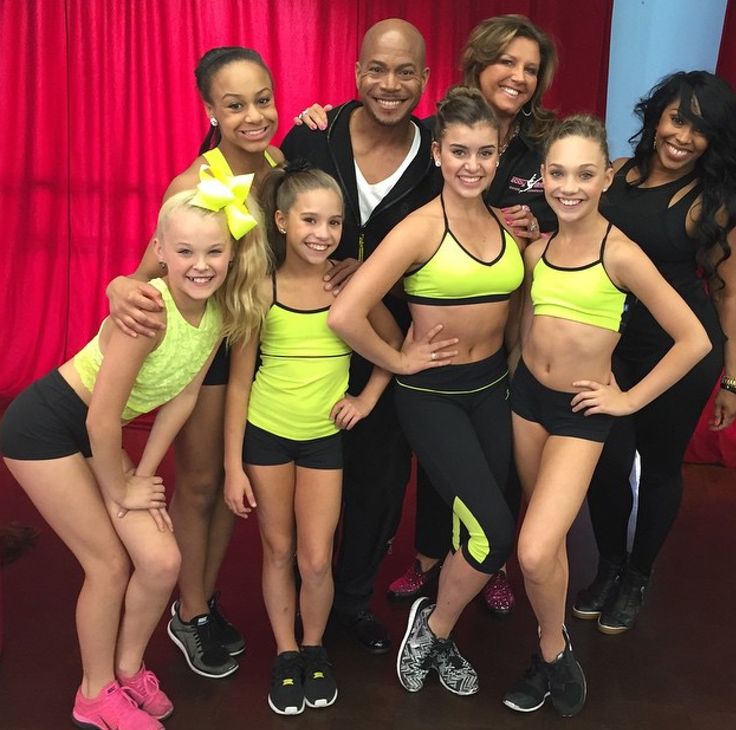 In such families, the predominant parenting style is overprotection.
In such families, the predominant parenting style is overprotection.
Parents take care of the baby, carefully monitor what he eats, how he is dressed, what he plays. Over time, the degree of control increases. It would seem that parents take care of the child, but for some reason later this care has a negative impact on his development. The child grows up without initiative, irresponsible, incapable of communication. It is difficult for him to adapt to the new team. The constant presence of the mother nearby complicates the process of socialization.
If the mother's overprotectiveness does not weaken over the years, then problems arise in relationships with the opposite sex.
Projection of one's own desires
Sports training, dance section, and for the development of intellectual abilities - mental arithmetic and chess classes ... An approximate list of activities can be found in the schedule of modern children. The child must be constantly busy, develop physically and intellectually. A good mother is obliged to provide these conditions. This is all true, but upon closer examination it turns out that in childhood my mother dreamed of dancing, playing chess or doing gymnastics. And for some reason, no one cares that a son or daughter prefers swimming to dancing; want to learn how to play the guitar, not chess.
A good mother is obliged to provide these conditions. This is all true, but upon closer examination it turns out that in childhood my mother dreamed of dancing, playing chess or doing gymnastics. And for some reason, no one cares that a son or daughter prefers swimming to dancing; want to learn how to play the guitar, not chess.
Obsession with the child as a way of self-realization
Too much free time, lack of favorite activities. problems in relationships with a spouse - all that makes you direct unspent energy to a child. Such mothers unconsciously look for ways to realize their abilities and, not finding them in the surrounding reality, become “good mothers”. In this field, no one can blame them. They know how to become a good mother, maintain this image and at the same time find a solution to their problem in it. Exaggerated expectations from a child often lead to internal conflict.
"Mom, you're bad!"
A phrase that can be heard from the lips of almost any baby sounds insulting to every mother. But do not rush to be offended and draw conclusions. In fact, the child puts a completely different meaning into this statement. He wants to get your attention or achieve his goal at any cost.
But do not rush to be offended and draw conclusions. In fact, the child puts a completely different meaning into this statement. He wants to get your attention or achieve his goal at any cost.
Mom begins to analyze what she did wrong; Why did the child have such an opinion. And the kid just watches the reaction. If he succeeds with this phrase to achieve a result, he will repeat it again and again.
How to be a good mother: a guide to action
There are no rules to be a good mother. There are no recipes for a happy family life. But in every family where a child grows up, there is every chance for the family to be happy. Much depends on the mother, who creates the children's space and plays a key role in raising the younger members of the family.
A few tips on how to become a good mother and positively influence the development of the child.
Spend time together: interesting and useful
See also: How to raise a child to be a leader: advice to parents
No matter how trite it may sound, the most important thing you can give a child is love and time. Due to their busy schedule, parents spend little time with their children. Often, communication is limited to household chores (“eat”, “sleep”) and questions (“how are you?”; “what's new?”). If the child is still small, then the mother, too, can not always be around: there are a lot of household chores.
Due to their busy schedule, parents spend little time with their children. Often, communication is limited to household chores (“eat”, “sleep”) and questions (“how are you?”; “what's new?”). If the child is still small, then the mother, too, can not always be around: there are a lot of household chores.
Meanwhile, nothing brings people together like joint activities. Get closer to the child. Spend time together, even if it is small and never enough. In any case, there are 24 hours in a day, which must be distributed rationally.
Acquiring an interesting hobby will be an excellent solution for joint leisure. Perhaps there is something that can be interesting for both children and adults.
First think, then speak and act
It is necessary to think over your words and actions before you speak and do them. Often, in a fit of anger and irritation, we can raise our voice and utter unpleasant words. Later we regret, we try to make amends, but the word is not a sparrow, it will fly out - you won’t catch it.
Children are very sensitive to such statements and are very vulnerable, all the more so when harsh words come from the lips of the dearest person, mother.
And mother condemns herself for allowing herself such behavior that does not correspond to the image of a “good mother”. After some time, the situation repeats itself: happy motherhood is not only positive emotions, but sometimes irritation and discontent.
Support in all circumstances
The child needs your support and kind words - even when he is wrong, especially when the whole world is against it. A good mother will never let others doubt her child's abilities. If he behaves incorrectly, an explanatory conversation will follow, but later, when there are no strangers nearby.
Do not reproach yourself if the baby is naughty or indulges. Childhood is the time when you can indulge in innocent pranks and funny entertainment. Perhaps someone will not like this behavior of the child, but this is not a reason to darken your mood. And certainly not a reason for sad reflections in the style of "I'm a bad mother."
And certainly not a reason for sad reflections in the style of "I'm a bad mother."
You don't need to read a lot of parenting books or watch videos on the Internet to learn how to be a good mother. Look closely at your child. What brings him joy? What does he love the most? Work in these directions, listen to his wishes, do not ignore requests, support and encourage any undertakings. To become a good mother, you need to listen and hear your child.
Sidyeva Kristina Veniaminovna
Master of pedagogy Gaudo "Orenburg Regional Palace
of the work of children and youth named after V.P. Polyanichko"
| We are on social networks | ||
| COVID - 19 |
| 1. 5 reasons, why should a child with a child to dance Many parents who want their children to be healthy plan to enroll their child in a dance class. It does not matter whether dancing becomes a hobby or a calling for a child, the main thing is the amazing benefits of dancing for your child, for his overall development. 1) Strengthen physical health. The best gift you as a parent can give your child is to instill the habit of exercising in order to be healthy. And dancing is a form of exercise. It doesn't matter what kind of dance your child will do, in any case, he will be on his feet and get a good dose of physical activity. In addition, most dance steps are aimed at stretching, to develop flexibility. 5 QUESTIONS ABOUT CHILD DANCE: WHAT A PARENT NEED TO KNOW Beautiful posture, flexibility, coordination, balance, the habit of respecting the opposite sex: there are so many advantages in dancing that more and more parents bring their children to the ballrooms. Some disappointments can be avoided if you realize in advance that there are also disadvantages. Psychologists comment on typical questions. |
 Consultations for parents and educators "Development of artistry in children's preschool choreography"
Consultations for parents and educators "Development of artistry in children's preschool choreography" 

 You can’t force him to practice or scold him if something doesn’t work out. In dancing, success depends more on desire, aspirations and abilities, and not on the maximum early “start”.
You can’t force him to practice or scold him if something doesn’t work out. In dancing, success depends more on desire, aspirations and abilities, and not on the maximum early “start”. 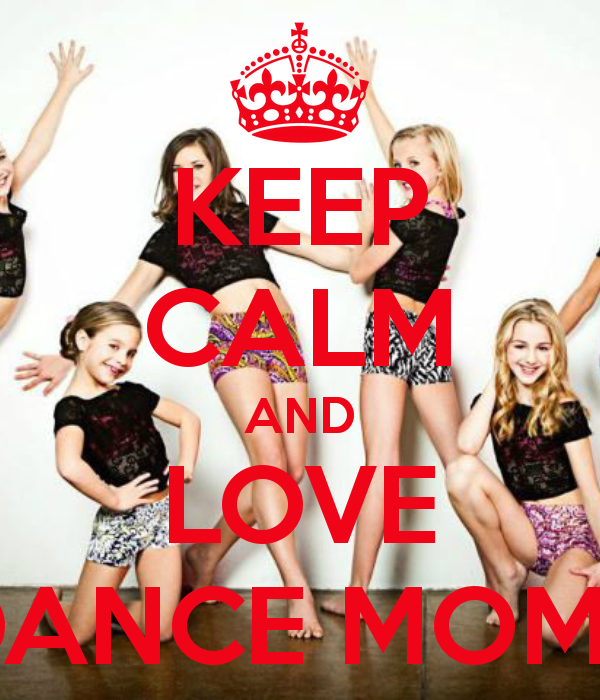 And vice versa, if the child is plump, but feels the music perfectly, is emotional and energetic, he can achieve good results.
And vice versa, if the child is plump, but feels the music perfectly, is emotional and energetic, he can achieve good results.  He won't dance. Moreover, it will not dance well and beautifully. Adults should remember: if children do not want to, do not drag them on a lasso, thinking that they are obliged to reconsider their views and understand the "wise" decision of their parents. The only thing that fathers and mothers can do in this situation is to try to awaken their child's interest in dancing. And then the desire to try dancing myself. To do this, you can be like performances, contests, watch videos. If parents notice that the child is at least a little interested, you can conduct preventive conversations, such as “do you like it?”, “Do you want to dance like that yourself?”, “We can enroll you in a club, and you will dance with other guys.”
He won't dance. Moreover, it will not dance well and beautifully. Adults should remember: if children do not want to, do not drag them on a lasso, thinking that they are obliged to reconsider their views and understand the "wise" decision of their parents. The only thing that fathers and mothers can do in this situation is to try to awaken their child's interest in dancing. And then the desire to try dancing myself. To do this, you can be like performances, contests, watch videos. If parents notice that the child is at least a little interested, you can conduct preventive conversations, such as “do you like it?”, “Do you want to dance like that yourself?”, “We can enroll you in a club, and you will dance with other guys.”  For some reason, it is customary for us to believe that men should fight or play football. And this is not so at all. A guy can box in the ring and be more gentle and soft in life than a dancer. Parents and loved ones play a very important role in solving the problem. They should feel the child, communicate with him, ask what emotions he has in his soul at the moment. It would be correct to explain that dancing is the same male sport or art as the female one, guys are also called to dance like girls - this is not shameful. And not all "real men" play hockey. The concept of a “real man” is completely different: character, actions, goals, behavior and much more. It would be nice to give specific examples. Gradually, the child will believe the parent's words and form his own personal point of view, which will be difficult for people to influence from the outside.
For some reason, it is customary for us to believe that men should fight or play football. And this is not so at all. A guy can box in the ring and be more gentle and soft in life than a dancer. Parents and loved ones play a very important role in solving the problem. They should feel the child, communicate with him, ask what emotions he has in his soul at the moment. It would be correct to explain that dancing is the same male sport or art as the female one, guys are also called to dance like girls - this is not shameful. And not all "real men" play hockey. The concept of a “real man” is completely different: character, actions, goals, behavior and much more. It would be nice to give specific examples. Gradually, the child will believe the parent's words and form his own personal point of view, which will be difficult for people to influence from the outside. 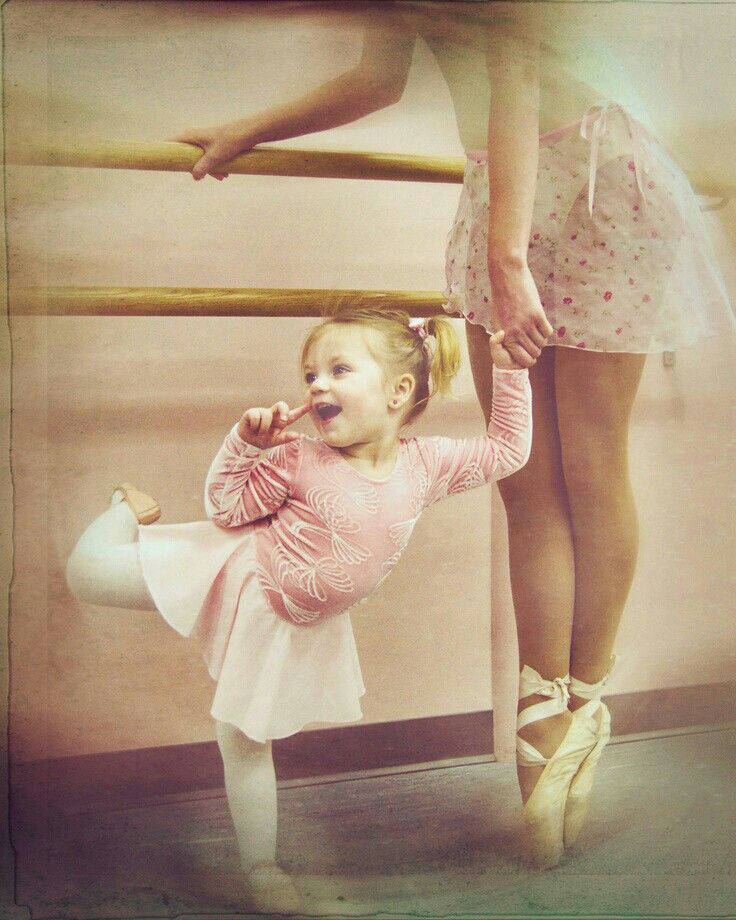 It’s good if a coach can help, because the best coach is the one who not only teaches children dance techniques, but is also a friend and teacher for his students in life. It plays a big role both in the physical preparation of children and the moral one: it sets up, motivates, encourages. But what if it's all to no avail? A good way to contact a specialist. Naturally, a child is unlikely to be happy to talk to a psychologist, but some children may not mind if their parents ask them to. We recommend that one family member (dad or mom) go to a specialist. But the psychologist should be rather not a child, but a family one, since all problems come mainly from the family. It is necessary to understand at what stage of the life cycle the family is. After all, such behavior of a child may not be directly related to dancing. Sometimes this is a sign that the discord and problems of his relatives and friends. In this regard, the child may begin to behave aggressively for any reason, and the reason may be just some kind of situation related to sports.
It’s good if a coach can help, because the best coach is the one who not only teaches children dance techniques, but is also a friend and teacher for his students in life. It plays a big role both in the physical preparation of children and the moral one: it sets up, motivates, encourages. But what if it's all to no avail? A good way to contact a specialist. Naturally, a child is unlikely to be happy to talk to a psychologist, but some children may not mind if their parents ask them to. We recommend that one family member (dad or mom) go to a specialist. But the psychologist should be rather not a child, but a family one, since all problems come mainly from the family. It is necessary to understand at what stage of the life cycle the family is. After all, such behavior of a child may not be directly related to dancing. Sometimes this is a sign that the discord and problems of his relatives and friends. In this regard, the child may begin to behave aggressively for any reason, and the reason may be just some kind of situation related to sports. After a visit to a psychologist, some questions may disappear. Parents will understand how to continue to behave with the child, how to talk to him and what is the cause of his depression. But ideally, of course, the family should come to the reception in full force in this case, the result will be noticeable faster.
After a visit to a psychologist, some questions may disappear. Parents will understand how to continue to behave with the child, how to talk to him and what is the cause of his depression. But ideally, of course, the family should come to the reception in full force in this case, the result will be noticeable faster.  Better yet, ask the child himself if he wants to become a champion. In addition, dancing takes a lot of time not only from children, but also from their parents. Moms and dads, it turns out, are included in this life. - Giving children to dance sport, we must take into account that it can not do without competition. It is important to present the child with a healthy point of view on any activity related to it. Few people do not know that in any sport there is politics to some extent. Dancing is no exception. Often the jury overestimates "their" dancers. And a child, seeing this injustice, can take it very seriously and incorrectly, which will weaken his self-confidence, affect his views and the psyche as a whole. He may be disappointed not only in dancing, but in general in life and people. Therefore, it is necessary to carry out prevention. Here, as elsewhere, the close environment plays the main role: you need to talk with the child. It is better for parents to convince their daughter or son that she or he dances not in order to rub someone's nose, but, first of all, for themselves.
Better yet, ask the child himself if he wants to become a champion. In addition, dancing takes a lot of time not only from children, but also from their parents. Moms and dads, it turns out, are included in this life. - Giving children to dance sport, we must take into account that it can not do without competition. It is important to present the child with a healthy point of view on any activity related to it. Few people do not know that in any sport there is politics to some extent. Dancing is no exception. Often the jury overestimates "their" dancers. And a child, seeing this injustice, can take it very seriously and incorrectly, which will weaken his self-confidence, affect his views and the psyche as a whole. He may be disappointed not only in dancing, but in general in life and people. Therefore, it is necessary to carry out prevention. Here, as elsewhere, the close environment plays the main role: you need to talk with the child. It is better for parents to convince their daughter or son that she or he dances not in order to rub someone's nose, but, first of all, for themselves.
